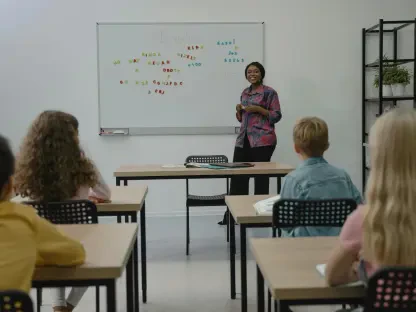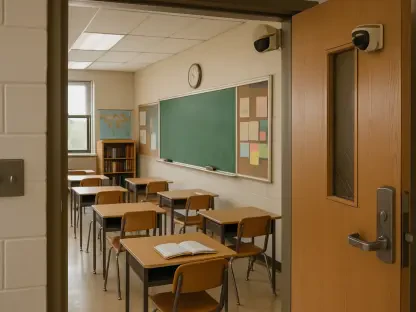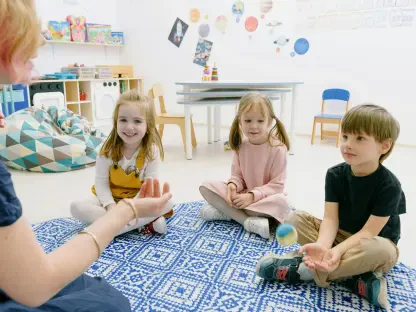In a world where early childhood education is increasingly recognized as the foundation for lifelong learning, one institution in Pasadena has emerged as a beacon of innovation for the youngest learners, setting a new benchmark for preschool programs. Stratford School Altadena has crafted a program that not only meets the developmental needs of 2-year-olds but also redefines what early education can achieve through a nurturing and forward-thinking approach. Since its inception, this school has prioritized creating an environment where children as young as 2 can thrive, even without the prerequisite of potty training, responding to the evolving needs of families. This initiative stands out by blending a caring atmosphere with a curriculum rooted in exploration and creativity, setting a new standard for preschool education. The focus on individualized attention and family collaboration further elevates its impact, ensuring that each child’s unique journey is supported with care and intention.
A Foundation Built on Care and Creativity
Nurturing the Youngest Minds
At the heart of Stratford School Altadena’s approach is a deep commitment to fostering a safe and welcoming environment for children just beginning their educational journey. Designed specifically for 2-year-olds, the Early Preschool program offers lower teacher-to-student ratios to ensure that every child receives the personalized attention they need during these formative years. Teachers are trained to build strong, trusting relationships with their students, helping them feel secure and valued as they navigate new experiences. This emphasis on emotional safety allows children to explore their surroundings with confidence, whether they’re engaging in group activities or discovering new textures through hands-on play. The classroom spaces are thoughtfully arranged to stimulate curiosity while providing comfort, ensuring that even the smallest learners can transition smoothly into a structured learning setting. This nurturing foundation is critical for building the social and emotional skills that will serve them throughout life.
Encouraging Exploration Through STEAM
Another cornerstone of this program is its integration of STEAM principles—Science, Technology, Engineering, Arts, and Mathematics—tailored to the developmental stage of 2-year-olds. Rather than focusing on rigid academic outcomes, the curriculum introduces these concepts through playful discovery, such as building simple structures with blocks or experimenting with colors during art time. These activities are designed to spark curiosity and encourage problem-solving in an age-appropriate way, laying the groundwork for critical thinking skills. Children also engage in music and movement sessions led by dedicated instructors, which not only foster creativity but also support fine motor development and self-expression. This holistic approach ensures that learning is a joyful process, where each new experience builds confidence and a love for discovery. Parents often note the excitement their children bring home after a day of such engaging exploration, highlighting the program’s success in making education a delightful adventure.
Building Connections and Growth
Fostering Social-Emotional Development
Social-emotional growth is a pivotal focus in Stratford School Altadena’s curriculum, woven seamlessly into daily interactions and activities. Through guided group play and positive role modeling by teachers, children learn essential skills like sharing, empathy, and cooperation, which are vital at this early stage. These interactions help them form their first friendships and understand how to navigate social settings with kindness and respect. The program prioritizes creating opportunities for children to express their feelings in a supportive environment, ensuring they develop a strong sense of self and emotional resilience. Teachers observe and adapt to each child’s unique needs, offering gentle encouragement to those who may be shy or hesitant. This careful attention to interpersonal development sets a foundation for healthy relationships, equipping children with tools to communicate and connect as they grow into more complex social environments.
Strengthening Family Partnerships
Collaboration with families is another vital element that distinguishes this early education initiative. Recognizing that parents are a child’s first teachers, the program actively involves families in the learning process through regular communication, parent conferences, and opportunities for direct engagement. A notable aspect is the flexible approach to milestones like potty training, where teachers work alongside parents to support each child’s readiness without pressure or strict timelines. This partnership extends to sharing insights about a child’s progress, celebrating achievements, and addressing challenges together. Such collaboration ensures that the transition into preschool feels like a shared journey, with families feeling connected and informed every step of the way. The emphasis on building these strong ties reflects a belief that education is most effective when it unites home and school, creating a cohesive support system for the child’s overall development.
Reflecting on a Transformative Impact
Celebrating Individual Progress
Looking back, the Early Preschool program at Stratford School Altadena proved to be a transformative space where children with diverse needs found the support to flourish. Stories from parents, like one father whose son overcame a speech delay through the program’s engaging resources and caring environment, highlighted how tailored attention made a profound difference. The spacious classrooms and thoughtfully chosen manipulatives provided a canvas for creativity, while teachers celebrated each small victory with genuine enthusiasm. This individualized approach ensured that every child’s unique strengths were recognized and nurtured, allowing them to progress at their own pace. Reflecting on these outcomes, it was clear that the program’s dedication to personal growth created lasting impacts, setting children on a path of confidence and curiosity that would carry forward into future learning experiences.
Looking Ahead to Future Opportunities
As the legacy of this initiative continued to unfold, the focus shifted to how families could further engage with such impactful education. An Open House event scheduled for October 25 offered a chance for prospective parents to witness the nurturing environment firsthand, while personal tours provided deeper insights into the daily experiences of enrolled children. These opportunities underscored the school’s commitment to transparency and community involvement, inviting families to explore how this innovative approach could benefit their own children. Moving forward, the emphasis remained on sustaining this model of care and creativity, ensuring that more young learners could access a preschool experience that prioritized their emotional, social, and intellectual development. This reflection on past successes paved the way for continued growth, encouraging a broader dialogue about the importance of early education in shaping future generations.









